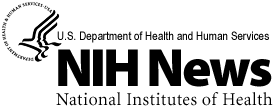| NHLBI Media Availability: Greater Diabetes Risk in Patients
Taking High Blood Pressure Medications
In a long-term study of older adults with high blood pressure from
the National Heart, Lung, and Blood Institute of the National Institutes
of Health, participants without diabetes who were taking high blood
pressure medications experienced increased average fasting glucose
levels. This was true regardless of which class of medication was
used: diuretic, ACE inhibitor, or calcium channel blocker. During
a 4 year period, the glucose changes led to new diagnoses of diabetes
in approximately 1 in 10 participants (diuretic 11.0 percent, ACE
inhibitor 7.8 percent and calcium channel blocker 9.3 percent .)
However, the results of this Antihypertensive and Lipid-Lowering
Treatment to Prevent Heart Attack Trial (ALLHAT) analysis showed
no significant evidence that the new onset diabetes increased the
risk of stroke, heart failure, or death from any cause, but it did
increase the risk of heart attack. In those taking a diuretic, the
relationship between new diabetes and coronary disease was actually
less than in those taking the other drugs and not significant for
the diuretic. According to the authors, this suggests that the glucose
changes induced by diuretics do not lead to heart disease in the
same way as diabetes caused by overweight, inactivity, and genetic
predisposition. This finding is strongly supported by previous findings
in a 14-year follow-up of the Systolic Hypertension in the Elderly
Program (SHEP).
“Fasting Glucose and Incident Diabetes Mellitus in Older Non-diabetic
Adults Randomized to Receive Three Different Classes of Antihypertensive
Treatment,” is published in the November 13, 2006 issue of
Archives of Internal Medicine.
Jeffrey Cutler, M.D., co-author of the paper and project director
of the ALLHAT study, is available to comment on the study's findings.
To schedule interviews, contact the NHLBI Communications Office
at 301-496-4236.
The National Heart, Lung, and Blood Institute (NHLBI) plans,
conducts, and supports research related to the causes, prevention,
diagnosis, and treatment of heart, blood vessel, lung, and blood
diseases; and sleep disorders. The Institute also administers national
health education campaigns on women and heart disease, healthy weight
for children, and other topics. NHLBI press releases and other materials
are available online at: www.nhlbi.nih.gov.
The National Institutes of Health (NIH) — The Nation's
Medical Research Agency — includes 27 Institutes and Centers
and is a component of the U. S. Department of Health and Human Services.
It is the primary federal agency for conducting and supporting basic,
clinical, and translational medical research, and it investigates
the causes, treatments, and cures for both common and rare diseases.
For more information about NIH and its programs, visit www.nih.gov
|

